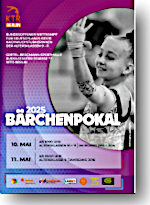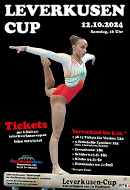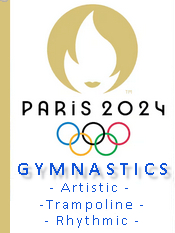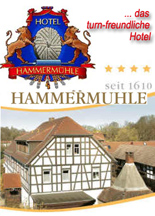Deutsch Englisch
25. Februar 2011
Warner Springs, Calif., USA
Artistic Gymnastics
Frank Bare, US Gymnasics Legend, passed away ...
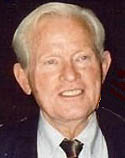 |
|
Frank BARE (USA |
* usoc-pressbox --: << Frank BARE of Warner Springs, Calif., the first executive director for the U.S. Gymnastics Federation now doing business as USA Gymnastics, died earlier today of pneumonia at the age of 80.
Following a decorated collegiate gymnastics career at the University of Illinois that included a national NCAA pommel horse title, Bare went on to become one of the most influential men in gymnastics in the United States.
Bare was a member of the FIG’s Executive Committee from 1972-76 and served as an FIG vice president from 1976-80. He also was chairman of the International Gymnastics Hall of Fame. ...
Following a decorated collegiate gymnastics career at the University of Illinois that included a national NCAA pommel horse title, Bare went on to become one of the most influential men in gymnastics in the United States.
Bare was a member of the FIG’s Executive Committee from 1972-76 and served as an FIG vice president from 1976-80. He also was chairman of the International Gymnastics Hall of Fame. ...
INDIANAPOLIS, Ind., Feb. 25, 2011 –
* usoc-pressbox --: “Frank BARE played an integral role in the development of gymnastics at many levels,” said Steve Penny, president of USA Gymnastics. “He was truly dedicated to the best interests of the sport, and it is because of his leadership that USA Gymnastics has remained such a vital national governing body from its earliest days. His legacy is strong, and he will be missed by many who knew him.”
“I first met Frank as a young member of the U.S. Team that won the team bronze medal at the 1979 World Championships,” said Peter Vidmar, two-time Olympic gold medalist and chairman of the USA Gymnastics Board of Directors. “Frank had been at the helm of the USGF for many years, and this was a very proud moment for him. He was a pioneer in our sport who helped lay the foundation for the success we enjoy today.”
The U.S. Gymnastics Federation was founded in 1963, and Frank Bare was tabbed by the founders to head the organization. He accepted the position and built the foundation for USA Gymnastics from his kitchen in Tucson/Ariz. Bare, a former athlete, coach and judge, guided the fledgling organization through the process of becoming the USA’s national governing body for gymnastics and separating the sport from the Amateur Athletic Union.
Recognized as a visionary, he galvanized athletes, coaches, judges and other members of the gymnastics community to band together to build the sport in this country. In just seven years, Bare’s efforts paid off when the USGF was recognized by the International Gymnastics Federation in 1970.
Recognized as a visionary, he galvanized athletes, coaches, judges and other members of the gymnastics community to band together to build the sport in this country. In just seven years, Bare’s efforts paid off when the USGF was recognized by the International Gymnastics Federation in 1970.
Bare’s involvement and enthusiasm helped spark national interest in gymnastics during the 1970s, especially following the 1972 and 1976 Olympic Games.
He organized the first USGF national championships, as well as international gymnastics tours. Bare brought the world’s top gymnastics countries to the United States, giving the USA’s athletes the opportunity to compete against the very best. In 1976, he started the first American Cup, held at Madison Square Garden in New York City. The event has grown into one of the most prestigious international invitationals in the world.
In 1979, Bare hosted the USA’s first World Gymnastics Championships in Ft. Worth, where the U.S. Team won three gold, three silver and two bronze medals for its best showing at a World Championships at that time.
He organized the first USGF national championships, as well as international gymnastics tours. Bare brought the world’s top gymnastics countries to the United States, giving the USA’s athletes the opportunity to compete against the very best. In 1976, he started the first American Cup, held at Madison Square Garden in New York City. The event has grown into one of the most prestigious international invitationals in the world.
In 1979, Bare hosted the USA’s first World Gymnastics Championships in Ft. Worth, where the U.S. Team won three gold, three silver and two bronze medals for its best showing at a World Championships at that time.
Bare served as the USGF’s executive director from 1963-80. Bare was a member of the FIG’s Executive Committee from 1972-76 and served as an FIG vice president from 1976-80.
He also was chairman of the International Gymnastics Hall of Fame.
Bare was inducted into the USA Gymnastics Hall of Fame in 1984 and the International Gymnastics Hall of Fame in the Lifetime Achievement category in 1999. He was also made an honorary member of the FIG in 1980.
He also was chairman of the International Gymnastics Hall of Fame.
Bare was inducted into the USA Gymnastics Hall of Fame in 1984 and the International Gymnastics Hall of Fame in the Lifetime Achievement category in 1999. He was also made an honorary member of the FIG in 1980.
In addition to his activities in gymnastics, Bare also was a watercolor landscape artist.
He suffered from Inclusion Body Myositis (IBM), an inflammatory muscle disease that impacts the muscles (typically in the arms and legs), for nearly 20 years.
He suffered from Inclusion Body Myositis (IBM), an inflammatory muscle disease that impacts the muscles (typically in the arms and legs), for nearly 20 years.
A St. Louis native, Bare competed for the University of Illinois, where he was coached by Charlie Pond. In 1952, he won the Big Ten and NCAA pommel horse titles, as well as finished third in the Big Ten’s all-around.
One year later, he finished second in the pommel horse and parallel bars and third in the all-around at the Big Ten Championships, in addition to winning the pommel horse silver medal at the NCAA Championships. In 1954, he earned his second Big Ten pommel horse crown. Bare also coached and served as a judge during his gymnastics career.
One year later, he finished second in the pommel horse and parallel bars and third in the all-around at the Big Ten Championships, in addition to winning the pommel horse silver medal at the NCAA Championships. In 1954, he earned his second Big Ten pommel horse crown. Bare also coached and served as a judge during his gymnastics career.
He is survived by his son, Frank Bare, Jr.;
two daughters, Cydney and Becky; and his wife, Linda.
* source: USOC pressbox
two daughters, Cydney and Becky; and his wife, Linda.
* source: USOC pressbox
















